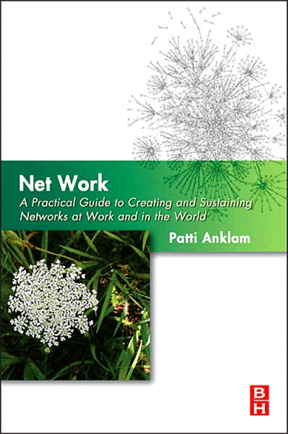I’ve not blogged much at all lately, because I’ve not yet discovered how to combine blogging and work without revealing too much about my clients. And of course I tweet (panklam). What I have blogged, I’ve done over at TheAppGap. Here are two of my recent posts from there:
- The Connection <--> Collaboration Continuum, about the pattern I’m seeing in how social platforms (which I would define as any web-based site that provides some set of collaboration and social media tools)
- Adoption Stories, a new inquiry about the nature of culture and adoption, which was given a great boost by a blog from Hutch Carpenter’s post in the Social Computing Journal Enterprise 2.0: Culture is as Culture Does.
I decided to tweet this last one, and as I did, the term “openwork” emerged as I tweeted:
- mulling adoption patterns and the culture that supports openwork for E2.0 http://bit.ly/gcHdb
Just after that, I Googled the term and found (2nd entry) the Merriam Webster Online’s definition:
- : work constructed so as to show openings through its substance : work that is perforated or pierced
This morning @movito tweeted,
- @panklam What is openwork? How does it differ from Net Work?
So, an alert follower picked up that I was thinking about a new way to think about work that is different from net work. I wrote Net Work![]() in 2007, I consciously left out technology, except to provide a bit of a placeholder in an appendix. I knew that the landscape in social tools was changing rapidly and that my book would be out of date within months if I tried to talk about specific technologies. (I’m still quite happy with that decision.)
in 2007, I consciously left out technology, except to provide a bit of a placeholder in an appendix. I knew that the landscape in social tools was changing rapidly and that my book would be out of date within months if I tried to talk about specific technologies. (I’m still quite happy with that decision.)
For my work, I consciously separate the words net and work to underscore that networks take work, intentional design and maintenance. This is true of our organizational networks as much as it is about our personal networks.
Now I found myself uniting the words open and work to provide a metaphor to convey that the networks we live in (because we live in networks all the time) provide the scaffolding for openwork, which is constructed so as to show openings - for meaning, for connections, for knowledge transfer - through its substance.


